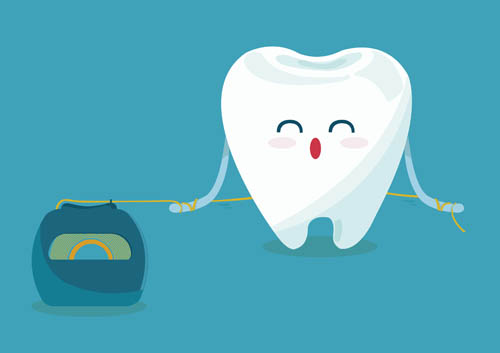Proper Flossing Techniques
January 29th, 2026

Of all the dental hygiene techniques you can use at home to promote clean teeth and good oral health, flossing is likely to be the one that troubles most people. It can be viewed as confusing and time-consuming, but when you learn how to floss your teeth correctly, you’ll find it’s easy to do on a daily basis.
Proper flossing techniques are vital to the health of your teeth and gums. These tips will help you with the correct flossing procedures. Likewise, Dr. John Zarrella and Dr. Peter C. Rider and our team can also help you learn how to floss effectively and efficiently.
Steps to Flossing Your Teeth Properly
- Choosing Dental Floss. You can find dental floss in various flavors, as well as waxed or unwaxed. If the floss you use seems to get stuck between your teeth, switch to waxed to make it easier.
- Flossing “Helpers.” Beginner flossers who have trouble coordinating the floss and the movements of their hands can use a floss holder to help them get in and around teeth.
- Preparing the Floss. Cut an 18-inch piece of floss to use for flossing a few teeth. This allows you to make progress before you must stop and cut another piece of floss.
- How to Hold It. Wind the ends around your middle fingers. Hold the floss taut, pinching each side with your thumbs and index fingers. Leave a couple inches free in the middle.
- The Process of Flossing. Use your index fingers to guide the floss toward your gum line. Bring it down between the teeth with a zigzag motion. Hold the floss in a C-shape around the tooth, and move it up and down along the side.
- Where to Floss. Use a clean portion of the floss to clean around and in between each tooth. Don’t forget about the molars in the back of your mouth, too!
Flossing: A Vital Part of Oral Care
Periodontal disease begins at the gum line; this is where flossing comes in. Regular flossing helps you remove plaque from the gum line and between your teeth to avoid gum disease. In conjunction with daily brushing and twice-a-year visits to Zarrella Dentistry, floss each day to maintain good oral hygiene and overall health. Gum disease can have an impact on your general health, but it doesn't have to. This easy-to-prevent condition can be avoided with regular visits to our Ashland office and daily flossing. Allow our team to partner with you in maintaining a bright, shiny smile and good oral health.







